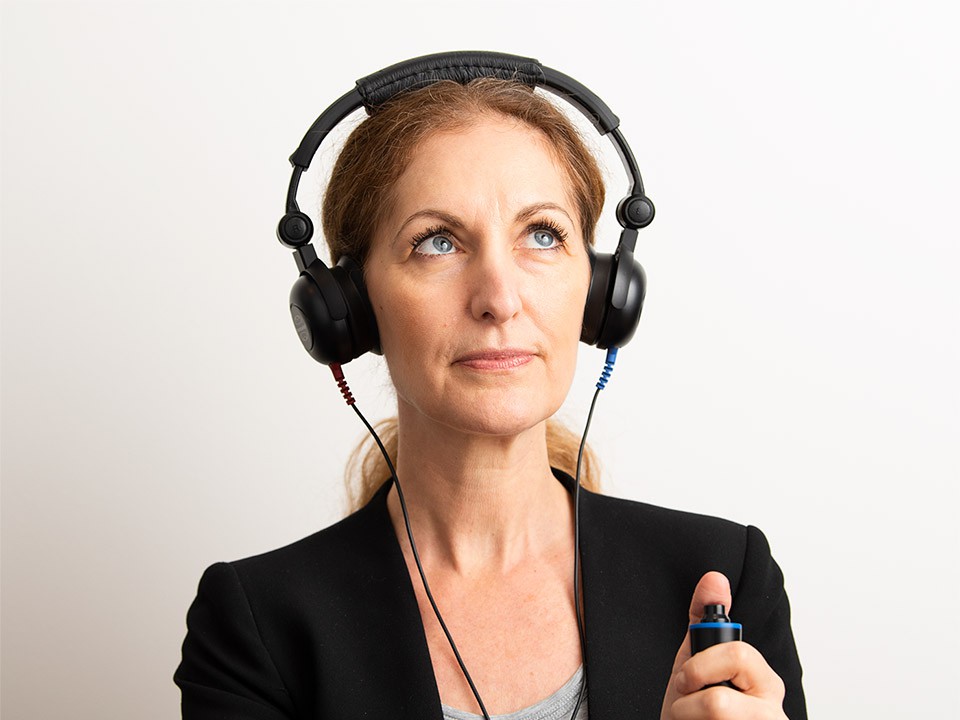Labyrinthitis - Symptoms, Causes and Treatment

What is Labyrinthitis?
Labyrinthitis occurs when there is inflammation in the inner ear labyrinth,[1] which is responsible for hearing and balance. If the labyrinth becomes inflamed, it causes dizziness, hearing loss, nausea and vertigo. Vertigo is when you feel like you are spinning even though your body is still.
Labyrinthitis is usually caused by a virus, such as a cold or flu. However, sometimes labyrinthitis results from a bacterial infection.
Often, labyrinthitis will clear up on its own in a few days, and treatment usually focuses on relieving symptoms. In rare cases, it can lead to ongoing problems and complications.
This article gives you an overview of labyrinthitis. Topics we explore include the following:
● Different types of labyrinthitis
● Symptoms
● Causes
● Treatments
● Prevention
Different Types of Labyrinthitis
There are two different types of labyrinthitis - viral and bacterial.
Viral labyrinthitis: This is the most common form of the infection and is caused by viruses like colds, flu, measles, mumps or hepatitis. Symptoms often appear suddenly, and usually, only one ear is affected.
Bacterial labyrinthitis: If you get a middle ear infection and germs spread into the inner ear, the inflammation and swelling can allow bacterial labyrinthitis to develop. Bacterial labyrinthitis may also result from an infection of the bones surrounding the inner ear. Symptoms of bacterial labyrinthitis are more intense than the viral version. They include severe vertigo, vomiting and tinnitus (a ringing or buzzing sound in the ear).
Your doctor can tell you what type of labyrinthitis you have. And neither version is contagious.
What Causes Labyrinthitis?
Most often, labyrinthitis develops following a viral infection from colds and flu. However, it can also be caused by a bacterial infection.
Labyrinthitis affects people of all ages, and several factors increase the likelihood of infection, including:
● Respiratory illnesses like bronchitis
● Middle ear or inner ear infections
● Bacterial infections, especially in the middle ear
● Viral diseases such as herpes and measles
● Stomach viruses
In addition, your lifestyle can play a part. The following factors may create a higher risk of developing labyrinthitis:
● Smoking
● Drinking too much alcohol
● A history of allergies
● Stress
Labyrinthitis is not contagious.
What Are the Symptoms of Labyrinthitis?
Symptoms of labyrinthitis are similar, regardless of whether you have the viral or bacterial version. However, people with bacterial labyrinthitis tend to experience more severe symptoms. Signs to watch out for include the following:
● Vertigo
● Dizziness
● Loss of balance or feeling unsteady on your feet
● Tinnitus
● Feeling nauseous or vomiting
● Problems with your hearing and vision
For many people, symptoms develop quickly and without warning. You may wake up one morning and suddenly feel unwell, with your symptoms worsening as the day goes on. They can be pretty intense for a few days before gradually easing off. Most people fully recover within one to three weeks, although it can take longer for some.
You should see your doctor as soon as you experience any labyrinthitis symptoms. While most infections clear up on their own, your GP can identify the underlying cause, and that’s crucial to preventing any long-lasting complications.
Furthermore, make sure you see your GP if symptoms do not get better after a few days or they start to get worse. You may need to be referred to a specialist for tests.
As labyrinthitis affects your balance, it’s essential not to drive or operate heavy machinery when experiencing symptoms.
Treating Labyrinthitis
If you have viral labyrinthitis, treatment options are aimed at relieving symptoms. Because a virus is the cause, antibiotics won’t help. Instead, your GP is likely to prescribe anti-histamines or motion-sickness tablets.
The treatment options for bacterial labyrinthitis are different. Your doctor will most likely recommend a course of antibiotics to tackle the bacteria.
For some people, it takes longer for your sense of balance to return to normal. There are special exercises you can do to help with ongoing vertigo. Sometimes called vestibular rehabilitation, these exercises are best done under the care of a physiotherapist. Discuss any balance problems with your GP, who may be able to refer you to a physio for specialist help.
Diagnosing Labyrinthitis
Your doctor will give you a physical examination. They will look into your ears using a special instrument called an otoscope. The GP will also undertake a neurological evaluation. Labyrinthitis shares several symptoms with other, more serious conditions. And the neurological examination helps your doctor to rule out things like a brain tumour, stroke or brain haemorrhage.
How to Prevent Labyrinthitis
It’s not possible to prevent labyrinthitis altogether, but there are things you can do to minimise the risk.
Wearing a face mask in public places during the cold and flu season reduces your chances of picking up a viral infection in the first place. In addition, make sure you wash your hands frequently when out and about.
And if you have labyrinthitis, you can reduce the severity of your symptoms with the following tips:
● Sit still during an attack of vertigo. Some people find a quiet, darkened room helps ease the worst effects of vertigo
● Keep your head as still as possible and avoid sudden movements or quick changes in position
● Take it easy when getting out of bed or a chair
● Drink lots of fluids and cut back on alcohol
● Apply a warm compress over your ear


